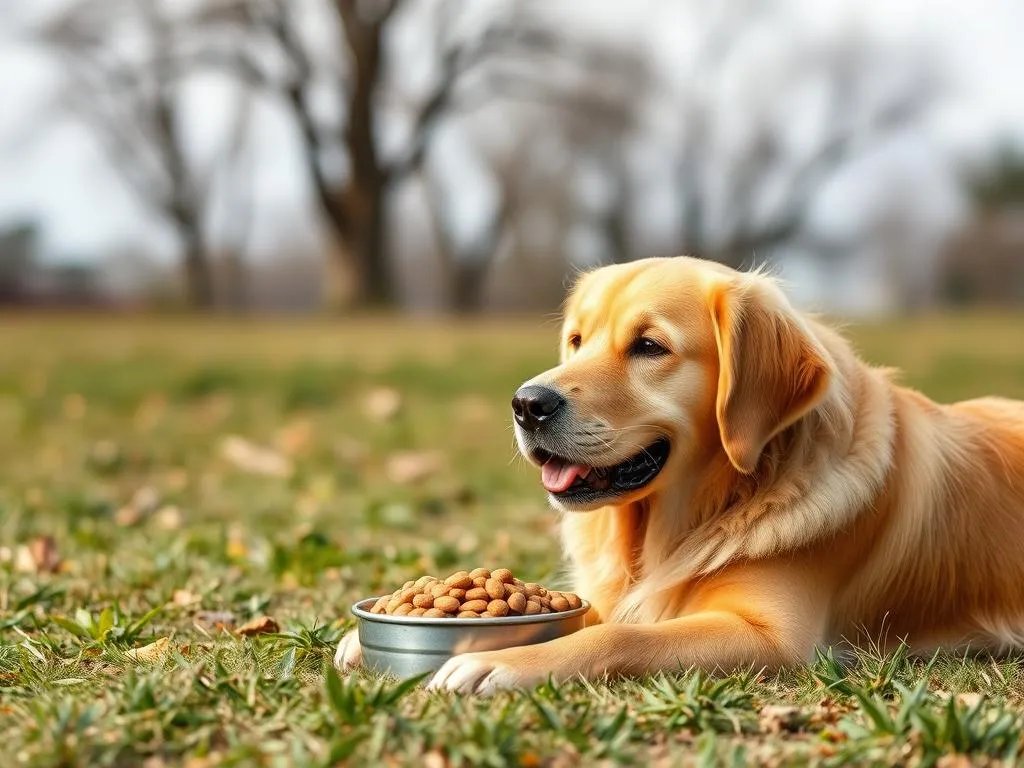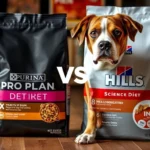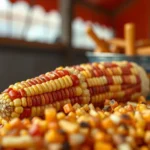
Introduction
Overview of Dog Nutrition
A balanced diet is fundamental for the health and well-being of dogs. Just like humans, dogs require a variety of nutrients to thrive, including proteins, fats, carbohydrates, vitamins, and minerals. Unfortunately, there are many misconceptions about dog food that can lead to poor dietary choices. For instance, some dog owners believe that all dog foods are created equal or that a single type of food will meet all nutritional needs. This is far from the truth, as dogs, like people, have unique dietary requirements based on their breed, age, and health condition.
Focus on Golden Retrievers
Golden Retrievers are one of the most beloved dog breeds, known for their friendly disposition and high intelligence. However, they also have unique dietary needs that must be addressed to ensure optimal health. This article will delve into the best dog foods for Golden Retrievers, taking into account their specific nutritional requirements and common health issues.
Understanding Dog Nutrition
Essential Nutrients for Dogs
To choose the best dog foods for Golden Retrievers, it’s crucial to understand the essential nutrients that dogs require:
-
Proteins: Vital for muscle development and repair, proteins support overall growth and health. They are made up of amino acids, some of which are essential and must come from the dog’s diet.
-
Fats: Healthy fats provide energy and support skin and coat health. They also play a role in brain development and the absorption of certain vitamins.
-
Carbohydrates: While not always essential, carbohydrates can serve as a valuable energy source and help with digestive health. They can also provide dietary fiber, which is important for a healthy gut.
-
Vitamins and Minerals: These micronutrients support various bodily functions, from immune health to bone strength. A balanced diet should include a variety of vitamins and minerals to ensure comprehensive health.
How Nutritional Needs Vary by Age
Golden Retrievers go through different life stages, each requiring specific nutritional considerations:
-
Puppy Stage: Puppies need food rich in protein and calories to support growth and development. Nutritional requirements are higher during this stage, as they are developing muscles and bones.
-
Adult Stage: Adult Golden Retrievers require a balanced diet that maintains their energy levels without leading to obesity. This stage is critical for managing weight and promoting overall health.
-
Senior Stage: As Golden Retrievers age, their metabolism slows down, and they may require lower-calorie diets with added joint support supplements to address age-related concerns.
Specific Nutritional Needs of Golden Retrievers
Common Health Issues in Golden Retrievers
Golden Retrievers are prone to certain health issues that can be mitigated with proper nutrition:
-
Hip Dysplasia: This genetic condition affects the hip joint and can lead to arthritis. A diet rich in omega-3 fatty acids can help reduce inflammation and support joint health.
-
Allergies and Skin Issues: Golden Retrievers may suffer from food allergies or skin irritations. Identifying allergens and providing a hypoallergenic diet can alleviate these issues.
-
Obesity and Weight Management: Golden Retrievers are prone to obesity, which can lead to various health problems, from joint issues to diabetes. Proper portion control and a balanced diet are essential for maintaining a healthy weight.
Nutritional Requirements
To meet the specific needs of Golden Retrievers, consider the following nutritional requirements:
-
Ideal Protein and Fat Content: Look for foods that contain a protein level of around 22-30% and a fat content of 8-15%. This balance supports muscle maintenance and overall energy levels.
-
Importance of Omega Fatty Acids: Omega-3 and Omega-6 fatty acids are crucial for skin health and reducing inflammation. Ingredients like fish oil and flaxseed can be beneficial.
-
Fiber for Digestive Health: A diet with adequate fiber (around 3-5%) contributes to digestive health and can help manage weight by promoting a feeling of fullness.
Factors to Consider When Choosing Dog Food
Life Stage Appropriateness
When selecting the best dog foods for Golden Retrievers, it’s essential to consider the life stage of your dog:
- Puppy Formula vs. Adult Formula: Puppy formulas are richer in calories and nutrients necessary for growth. In contrast, adult formulas are more balanced to maintain weight and overall health.
Ingredient Quality
The quality of ingredients is paramount in choosing dog food:
-
Whole Foods vs. Fillers: Look for whole food ingredients like real meat, fruits, and vegetables. Avoid foods with excessive fillers like corn and soy, which provide little nutritional value.
-
Grain-Free vs. Grain-Inclusive Diets: Some dogs thrive on grain-free diets, while others do well with grains. It’s essential to assess your dog’s specific needs and any potential allergies.
Special Dietary Needs
Consider any special dietary needs your Golden Retriever may have:
-
Allergies and Intolerances: Some dogs may require hypoallergenic diets or limited ingredient formulas to avoid allergens.
-
Weight Management Formulas: If your Golden Retriever is overweight, opt for weight management formulas that are lower in calories but still provide essential nutrients.
Top Recommendations for Best Dog Foods for Golden Retrievers
Commercial Dog Foods
When looking for the best dog foods for Golden Retrievers, here are a few highly recommended brands:
-
Brand A: Nutritional Profile and Benefits
Brand A offers a specially formulated large breed dog food that contains high-quality protein sources and is enriched with omega fatty acids. This formula is designed to promote joint health and overall vitality. -
Brand B: Nutritional Profile and Benefits
Brand B focuses on using whole ingredients, including real chicken and brown rice. Their adult formula is tailored for Golden Retrievers, providing a balanced mix of proteins, fats, and fiber for optimal health. -
Brand C: Nutritional Profile and Benefits
Brand C offers a grain-free option that is rich in protein and includes fruits and vegetables for antioxidants. This formula is excellent for Golden Retrievers with grain sensitivities.
Homemade Dog Food Options
If you’re interested in preparing homemade meals for your Golden Retriever, consider these basic recipes:
-
Chicken and Rice Recipe: Combine cooked chicken, brown rice, and steamed vegetables like carrots and peas. This meal is balanced and easy to digest.
-
Beef and Sweet Potato Recipe: Cook lean ground beef with diced sweet potatoes and green beans. This recipe is packed with protein and essential nutrients.
Important Ingredients to Include and Avoid:
Include lean meats, vegetables, and whole grains. Avoid ingredients like onions, garlic, chocolate, and excessive salt.
Raw Diet Considerations
Raw feeding has gained popularity, but it’s essential to weigh the pros and cons:
-
Pros: Advocates argue that raw diets can improve coat condition, dental health, and energy levels. They often contain fewer preservatives and artificial ingredients.
-
Cons: Raw diets can pose risks, including bacterial contamination and an unbalanced nutrient profile. Proper preparation and knowledge of canine nutrition are vital.
How to Transition to a New Dog Food
Signs Your Dog May Need a Change
Be attentive to signs that may indicate your dog needs a dietary change:
-
Weight Changes: Sudden weight gain or loss can be a red flag.
-
Allergic Reactions: Symptoms such as itching, digestive upset, or skin irritations can indicate food intolerances.
Transition Process
When switching to a new food, follow these guidelines for a smooth transition:
-
Gradual Introduction: Start by mixing a small amount of the new food with the current food. Gradually increase the new food’s proportion over 7 to 10 days.
-
Monitoring for Adverse Reactions: Keep an eye on your dog’s health during the transition. If you notice any adverse reactions, consult your veterinarian.
Additional Tips for Feeding Golden Retrievers
Portion Control and Feeding Schedule
Maintaining proper portion control and a consistent feeding schedule is crucial:
-
Recommended Daily Amounts: Depending on their weight and activity level, adult Golden Retrievers typically require 1,000-1,500 calories per day.
-
Importance of Regular Feeding Times: Establishing a feeding routine can help regulate your dog’s digestion and prevent obesity.
Hydration Needs
Don’t overlook the importance of hydration:
-
Importance of Fresh Water: Always provide access to fresh water to keep your dog hydrated.
-
Signs of Dehydration to Watch For: Look for symptoms like dry gums, lethargy, or decreased appetite.
Common Myths about Dog Nutrition
Grain-Free is Always Better
While grain-free diets are beneficial for some dogs, they are not universally better. Many dogs do well on grain-inclusive diets, which can provide necessary fiber and nutrients.
Dogs Can Eat Human Food
Not all human foods are safe for dogs. Foods like chocolate, grapes, and onions can be toxic. Always research before sharing your meals with your pet.
All Natural Means Healthier
“All-natural” labels can be misleading. Always check the ingredient list and nutritional profile to ensure the food is genuinely healthy and suitable for your dog.
Conclusion
Choosing the best dog foods for Golden Retrievers is a vital component of maintaining their health and well-being. Understanding their unique nutritional needs, considering their life stage, and being mindful of ingredient quality can help you make informed decisions. As always, consulting with a veterinarian can provide additional guidance tailored to your dog’s specific health needs. By prioritizing nutrition, you can help your Golden Retriever lead a happy and healthy life.









